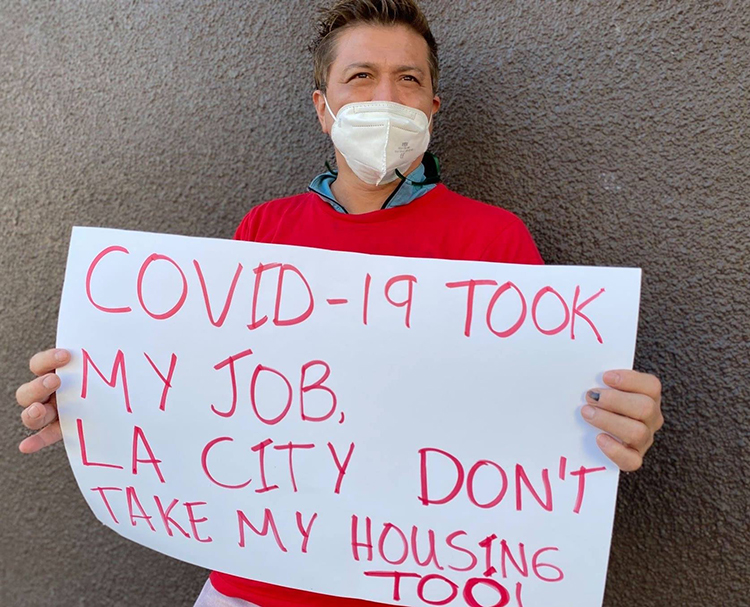LA City Councilmembers Unveil Plan to Protect Housing by Enforcing Home-Sharing Ordinance
Six councilmembers commit to vote NO on vacation rental loophole
Los Angeles, CA: In a show of unity and commitment, five Los Angeles city councilmembers Bob Blumenfield, Mike Bonin, Paul Koretz, Nithya Raman, and Monica Rodriguez held a press conference to unveil steps to protect housing for thousands of Angelenos by stronger enforcement of the city’s Home-sharing ordinance.
In an effort to further enforce the city’s strong home-sharing ordinance, Councilmembers Blumenfield, Koretz, and Raman, all filed separate motions with City Planning and Land Use Management recently.
“The City’s home sharing program has pulled thousands of much-needed housing units off the market, adding to our already disastrous homeless problem and has been beset by non-compliance, criminal activity and the destruction of once quiet single-family neighborhoods” said Los Angeles Councilmember Paul Koretz of the Fifth District. “If we’re going to take home sharing and its many challenges seriously, we need to provide the Planning Department with the resources necessary to effectively enforce the ordinance, and this needs to be done before we start digging a deeper hole with a vacation rentals program. We currently require primary residency for a reason. What possible excuse is there for this change?”
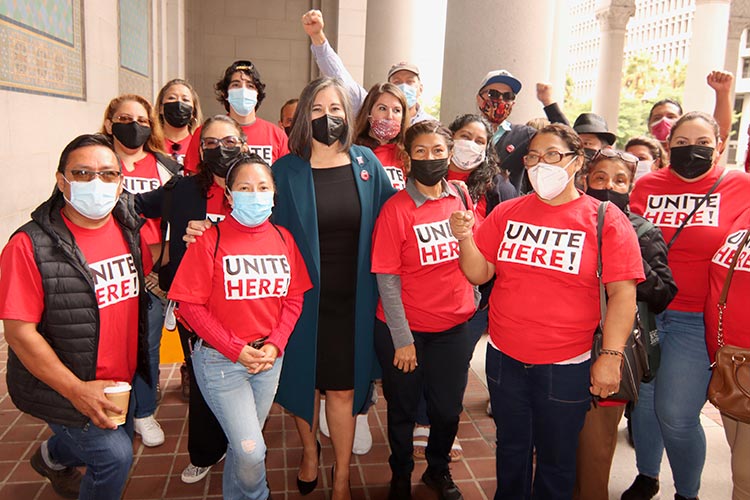 Elected officials pledged to vote “NO” on a Vacation Rental Loophole currently being considered, warning that the passage of it would take 14,000 homes off the market and convert them into short-term rental units and profoundly complicate the enforcement of short-term rental regulations in place. It would also create dire consequences for LA’s housing market with poor communities of color being the most affected. The loophole is expected to come to a vote in the coming weeks.
Elected officials pledged to vote “NO” on a Vacation Rental Loophole currently being considered, warning that the passage of it would take 14,000 homes off the market and convert them into short-term rental units and profoundly complicate the enforcement of short-term rental regulations in place. It would also create dire consequences for LA’s housing market with poor communities of color being the most affected. The loophole is expected to come to a vote in the coming weeks.
“If the City is struggling to enforce the home-sharing ordinance we already have on the books, what makes us think we’re ready to put in place a new vacation rental ordinance that, even when properly enforced, would allow almost 15,000 additional units to be taken off the rental market and turned into Airbnbs,” said Councilmember Raman. “I pledge to vote NO on the Vacation Rental Loophole currently being considered.”
“The adopted short term rental ordinance was explicitly written to limit participation to primary residences in order to protect our critical housing stock. We cannot reopen that loophole in the midst of a housing crisis. Housing needs to be protected for those who live and work in Los Angeles,” said Councilwoman Rodriguez
“We need to protect our housing stock and ensure that we’re maximizing the amount of units available for Angelenos; it’s imperative that we don’t allow ‘vacation rentals’ to become a loophole that decimates the protections in the short term rental legalization policy we adopted a few short years ago.” said Councilmember Bob Blumenfield. “Right now, there are thousands of illegal short-term rentals available on various platforms throughout the city. We must strengthen enforcement and reject adding loopholes that will lead to more expensive housing.”
Councilmember Bonin was one of the main sponsors of the original home-sharing ordinance passed in 2018 to address an extreme shortage of affordable housing and the negative effects of short-term rentals on long-term housing markets. The Ordinance strictly limits home sharing to primary residences and requires “hosts” of short-term rentals to register for a permit. It also prohibits “host platforms” from processing bookings for listings without a valid City Home-Sharing registration number.
“We need to put a stake in the heart of this harmful vacation rental proposal, which would take thousands of units off the rental market in the middle of a housing and homelessness crisis,” said Councilmember Mike Bonin. “The proposed vacation rental ordinance would shred any hope of enforcing existing short-term rental rules and would do real harm.”
The event came as housing advocates, working Angelinos and UNITE HERE Local 11 increased their calls for stricter enforcement of the HSO and demand that council reject the proposed VRO.
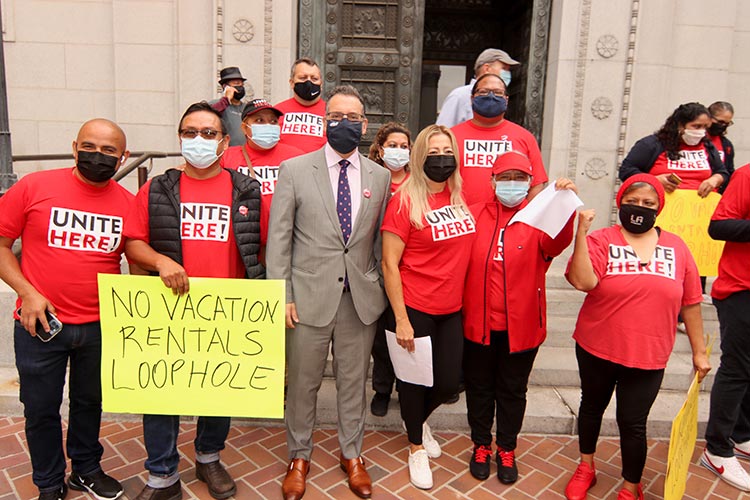 “When COVID hit I lost my job and my way of life. As a single mother I could not afford to pay the rent of a one-bedroom apartment and was forced to move farther and farther away from my job. I currently live in a small garage where I am barely getting by and live-in fear of becoming homeless every day,” said Clara Meza, member of UNITE HERE Local 11 who has worked as a food prep cook at Sky Chef’s for 36 years.
“When COVID hit I lost my job and my way of life. As a single mother I could not afford to pay the rent of a one-bedroom apartment and was forced to move farther and farther away from my job. I currently live in a small garage where I am barely getting by and live-in fear of becoming homeless every day,” said Clara Meza, member of UNITE HERE Local 11 who has worked as a food prep cook at Sky Chef’s for 36 years.
Although unable to attend in person, Councilmember De Leon said in a statement, “The fact that an eviction moratorium is the only thing preventing many Angelenos from living on the street is a clarion call for all of us to focus on increasing the number of permanently available units at any given time. In a moment like this, anything that detracts from that, like the vacation rental ordinance, should be off the table,” said Councilmember De Leon.
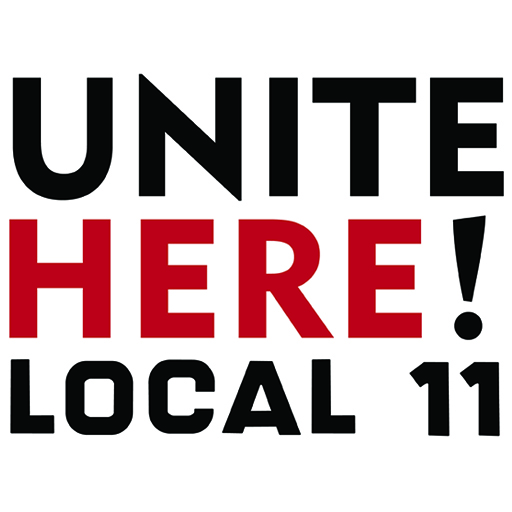
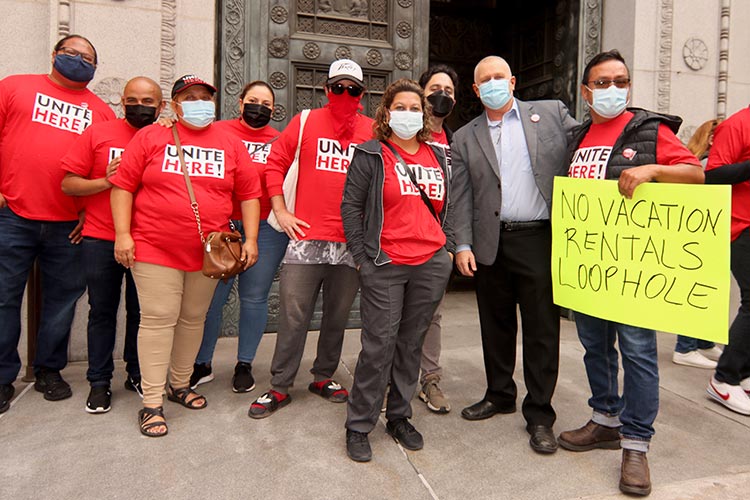
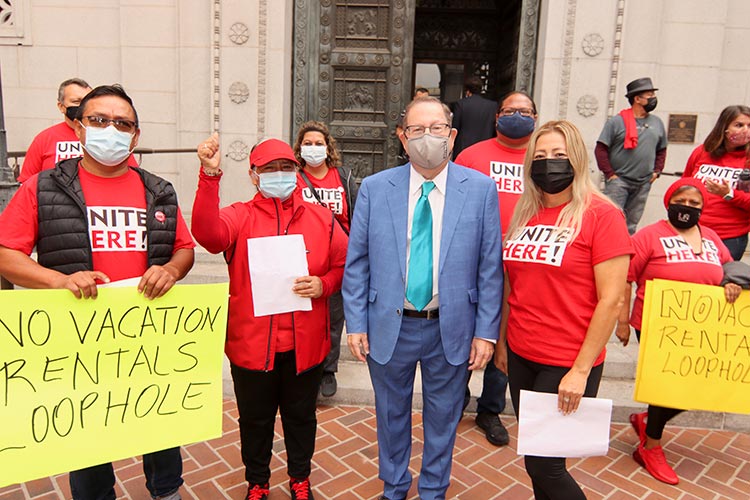
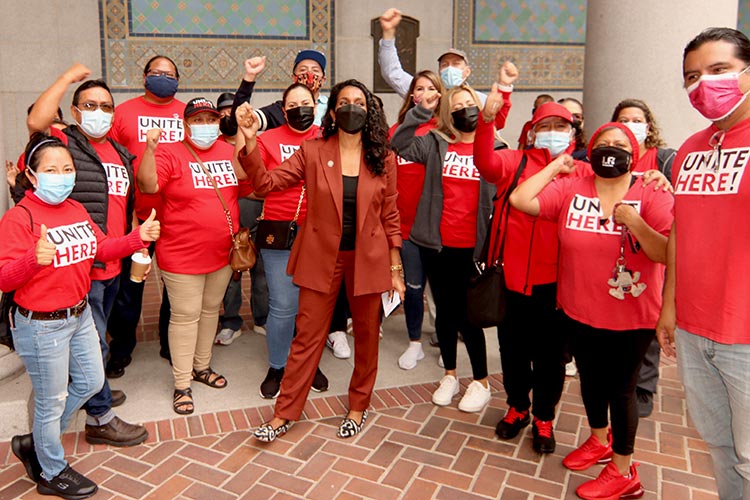
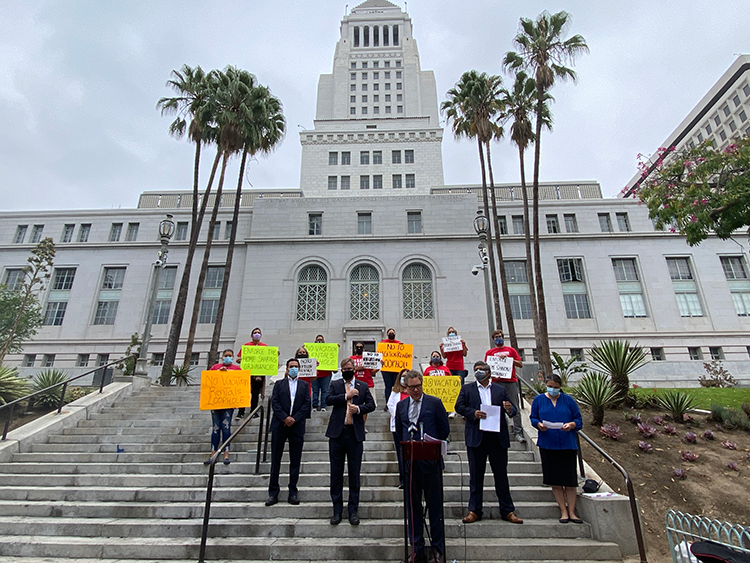
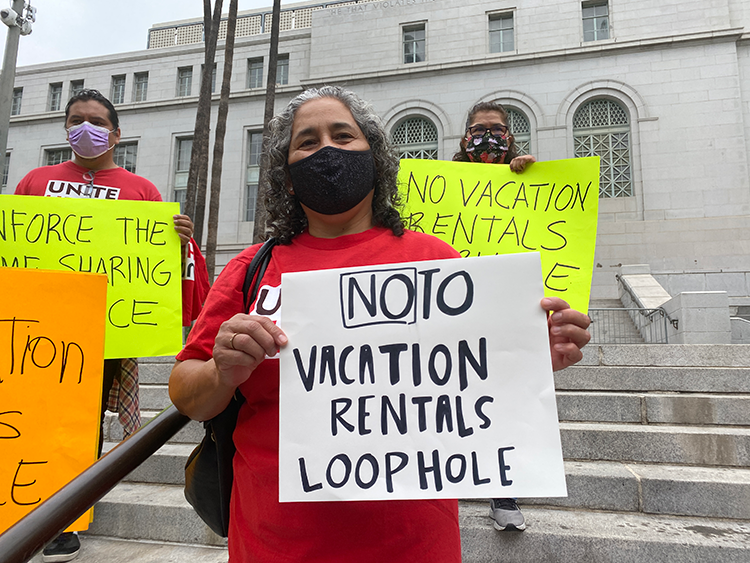

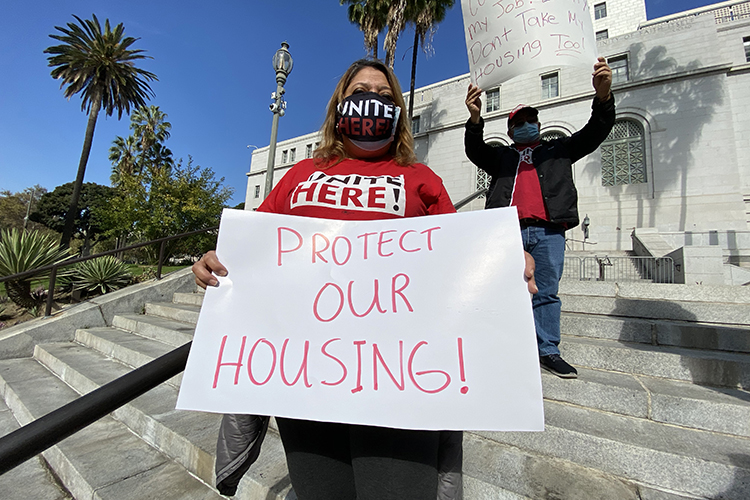 Lawsuit Forces Short-Term Rental Platform Out of L.A. Market
Lawsuit Forces Short-Term Rental Platform Out of L.A. Market